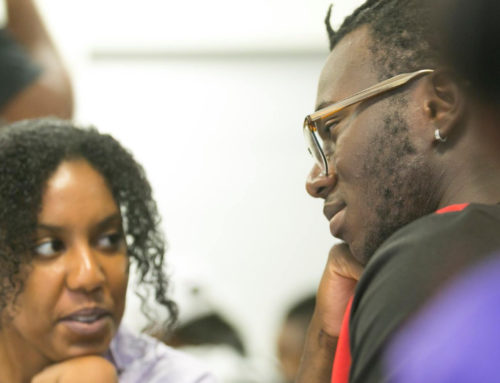Dependability
CareerU with Ryan, Volume II
Under promise and over deliver. As you begin to grow in your soft skills development journey, it is important that we make time to discuss the art of dependability. Essentially, the goal here is to communicate what you are going to do, and then go ahead and actually do it. The recipe for success is twofold: first communicating you will do something, and then actually executing it. This is easier said than done. We live in a world of distractions where one “to do” or “action item” is in one ear and out the other. Let’s take a closer look at how to be dependable and how it will ultimately deliver success for you and your career.
Being Dependable
The concept behind being dependable is quite simple: do exactly what you say you are going to do. Simple, right? I like to think so, but in my experience what I have found is quite contrary. We all can think of someone in his/her network who has a habit of saying something or making a promise, only for it to fall by the wayside. Part of this has to do with the competing priorities we have in our daily lives. Between emails, work or school, friends and extracurricular activities, we have full plates. I sometimes find myself making plans, only to have to cancel them due to something else that came up the day of. The other part of a widespread lack of dependability has to do with a larger societal influence. Making plans or promises and actually following through on them are undervalued in our society. Changing plans at a moment’s notice is commonplace. Often it is even encouraged, as we seek out something that could be even better than the plan we have in place.
Even so, I can’t stress enough the importance of dependability. When you deliver on what you say you are going to do, you bring results. If you consistently and continually do this, you build trust which in turn will bring you long lasting relationships. Trust will also undoubtedly bring with it more responsibility. If you can be trusted to deliver, especially in business, you will grow, take on more work and be line for a promotion. Finally, in your personal life, being dependable builds and forges lasting friendships. You want to be the friend that everyone can count on.
Here are a few steps you can take to build dependability:
Under promise and over deliver. In order to make sure that you do deliver on the things you say you are going to, give yourself some “slack” or “cushion” on the amount of time you have to complete a task. The strategy here is to actually deliver before the timeline you have set.
Keep a to-do list. Maintaining a list of to do’s, whether electronically or with a good ol’ fashioned paper and pen, will help you to stay organized and deliver on what you said you were going to.
Plan less. If you are big on making plans, great! If you tend to make too many plans, though, be careful. Over-planning leads to over-commitment and makes it significantly harder to be dependable.
Make promises that you can keep. If someone has an ask that seems a bit out of the norm, ask questions for clarity and think about how reasonable the ask is given your own abilities. The worst thing you can do is take on a task or make a promise you will do something that is not within reason.
Being dependable also means acknowledging when you are unable to follow through. This does not mean you have failed; it simply means other factors have gotten in the way. That’s life! What matters most here is how you react when you realize you are not on track to complete something you previously committed to. Share with the person holding you accountable (a friend, a boss, a professor) that you have encountered a roadblock, and what your proposed next steps are. By sharing how to best move forward, you are demonstrating that you have taken the time to craft a solution, rather than just announcing a problem. This is both respectful to the other person, and is information for you on how you can better follow through on a task in the future. Put simply, being dependable means following through on what you commit to. It also means being aware of whatyour own abilities and limitations are, so that you do not end up agreeing to something that is unreasonable. By following through and having self-awareness – a soft skill we will cover later on in this series – you build trust with others, and create and sustain meaningful relationships at work, at school, and in your personal life. If you can embody the soft skill of dependability, you are well on your way to success and happiness.



